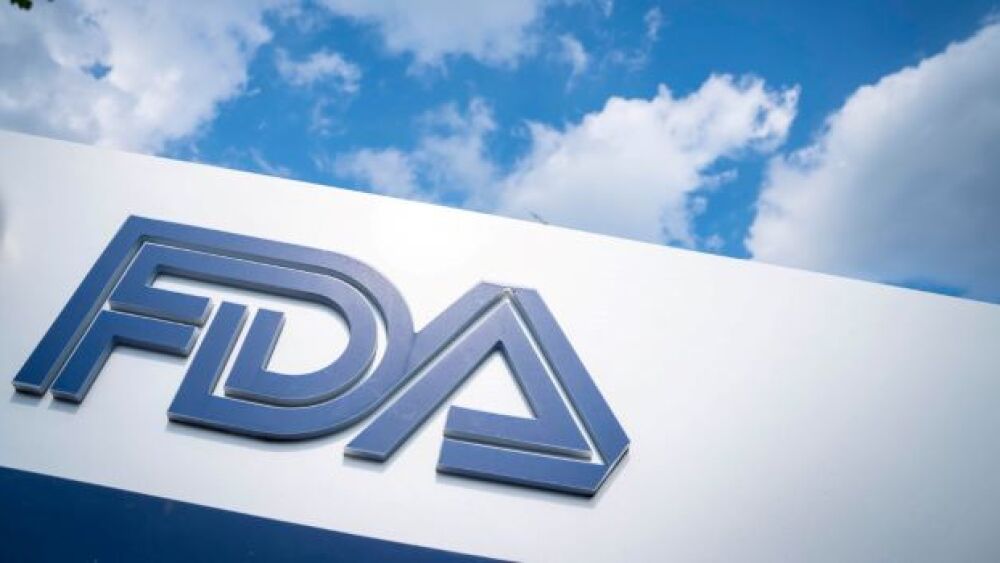The U.S. FDA has a busy schedule for the end of August and beginning of September. Let’s take a look.
Sarah Silbiger/Getty Images
The U.S. Food and Drug Administration (FDA) has a busy schedule for the end of August and beginning of September. Let’s take a look.
Cara and Vifor’s Korsuva for Pruritus in Hemodialysis Patients
Cara Therapeutics and Vifor Pharma have a target action date of August 23, 2021, for their New Drug Application (NDA) for Korsuva (difelikafalin) for moderate-to-severe pruritus in hemodialysis patients. It is under Priority Review. Pruritus is severe itching. The NDA is built on positive data from two pivotal Phase III trials, KALM-1, run in the U.S., and KALM-2, which was international, as well as data from another 32 clinical studies.
On August 9, during Cara’s second-quarter financial report, Derek Chalmers, president and chief executive officer of Cara, stated, “Having completed the late-cycle review of our NDA for our lead asset Korsuva Injection with the FDA during the second quarter of the year, we remain on track for an expected Prescription Drug User Fee Act (PDUFA) target action date of August 23, 2021, and continue to be focused, along with our commercial partner, Vifor Pharma, on preparation for the U.S. launch of Korsuva Injection in the second half of 2021, if approved. We also continue to make good progress in our Oral Korsuva programs across a range of patient populations where pruritus treatment remains a significant unmet need and, pending the outcome of our scheduled End-of-Phase II meeting with the FDA, aim to initiate our first Oral Korsuva Phase III program in mild-to-moderate atopic dermatitis patients by year-end of 2021.”
Kadmon’s Belumosudil for Chronic Graft-Versus-Host Disease
Kadmon Holdings had a target action date of August 30, 2021, for its NDA for belumosudil for chronic graft-versus-host disease (cGVHD). It was being reviewed under the agency’s Real-Time Oncology Review (RTOR) and Project Orbit pilot programs. It also received Breakthrough Therapy Designation in this disease for patients who have failed two or more lines of systemic therapy. It also received Orphan Drug Designation for cGVHD.
On July 16, the FDA approved the drug under the trade name Rezurock for adults and pediatric patients 12 years and older with cGVHD after failure of at least two previous lines of systemic therapy. It is the first and only FDA-approved small molecule inhibitor of ROCK2, a signaling pathway that modulates inflammatory responses and fibrotic processes.
“Rezurock represents a new treatment paradigm for thousands of cGVHD patients, including those with difficult-to-treat manifestations like fibrosis,” said Corey Cutler, Associate Professor at Harvard Medical School and Medical Director, Adult Stem Cell Transplantation Program at the Dana-Farber Cancer Institute. “Rezurock has shown robust and durable responses across the spectrum of cGVHD and is safe and well tolerated, allowing patients to stay on therapy and achieve meaningful benefit from treatment.”
Bristol Myers Squibb’s Opdivo for Muscle-Invasive Urothelial Carcinoma
Bristol Myers Squibb had a target action date of September 3 for a supplemental Biologics License Application (sBLA) for its checkpoint inhibitor Opdivo (nivolumab) for adjuvant treatment of patients with surgically resected, high-risk muscle-invasive urothelial carcinoma. The sBLA was based on data from the CheckMate-274 clinical trial. In the study, Opdivo showed a statistically significant and clinically meaningful increase in disease-free survival (DFS) compared to placebo independent of the patients’ PD-L1 levels.
The FDA approved the drug for this indication on August 20.
“This approval is a major milestone for patients who have undergone major surgery to remove the bladder or parts of the urinary tract and are in need of additional treatment approaches that can help reduce the risk of their UC returning,” said Matthew D. Galsky, a CheckMate-274 investigator and Professor of Medicine, Director of Genitourinary Medical Oncology, Co-Director of the Center of Excellence for Bladder Cancer, and Associate Director for Translational Research at The Tisch Cancer Institute and the Icahn School of Medicine at Mount Sinai.
Merck and Eisai’s Keytruda Plus Lenvima for Advanced Endometrial Carcinoma
Merck and Eisai had a target action date of September 3 for their sBLA for Merck’s checkpoint inhibitor Keytruda (pembrolizumab) and Eisai’s Lenvima (Lenvatinib) a kinase inhibitor, for advanced endometrial carcinoma. At the same time, they had PDUFA dates of August 25 and 26 for a sBLA for Keytruda and a sNDA for Lenvima for the first-line treatment of patients with advanced renal cell carcinoma (RCC).
On July 22, the combination was approved for certain types of advanced endometrial carcinoma.
On August 11, the FDA approved the combination for first-line treatment of adults with advanced RCC.
“This FDA approval is truly significant for the advanced renal cell carcinoma community,” said Takashi Owa, Chief Medicine Creation and Chief Discovery Officer, Oncology Business Group at Eisai. “The CLEAR/KEYNOTE-581 trial shows treatment with Keytruda plus Lenvima resulted in superior outcomes across progression-free survival, overall survival and objective response rate versus sunitinib in patients with advanced renal cell carcinoma.”





